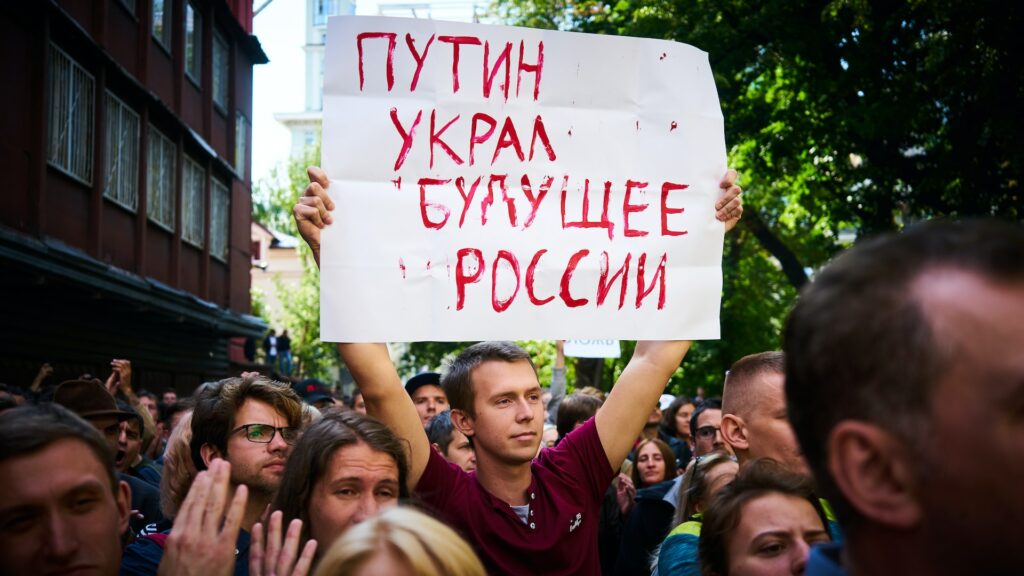
(Cupventi.com) – In a remarkable display of political dominance, President Vladimir Putin secured a historic victory in Russia’s recent elections, achieving the highest post-Soviet margin ever recorded.
This victory not only strengthens his already firm hold on power but also sends a clear message to the international community about Russia’s assertive stance on the global stage. Despite the overwhelming support reflected in the official results, the election’s integrity was questioned by both domestic opponents and international observers.
The elections saw Putin garnering an astounding 87.8% of the vote, according to exit polls conducted by the Public Opinion Foundation (FOM), with the Russian Public Opinion Research Centre (VCIOM) reporting a slightly lower figure of 87%. These figures far outpaced the tallies of his opponents, with Communist candidate Nikolai Kharitonov trailing significantly at just under 4%. The sheer scale of Putin’s victory is unprecedented in Russia’s recent history, underlining his unassailable position within the nation’s political landscape.
However, the legitimacy of this electoral triumph has been clouded by allegations of unfair practices. Critics argue that the election was compromised by the suppression of political dissent and the sidelining of potential rivals. Indeed, the White House’s National Security Council spokesperson criticized the elections as “obviously not free nor fair,” pointing to the incarceration of political adversaries and the obstruction of their electoral campaigns as key indicators of the democratic deficiencies at play.
The election unfolded against the backdrop of ongoing military conflict in Ukraine, initiated by Putin’s controversial decision to invade the neighboring country. Described by Putin as a “special military operation,” this conflict has reignited fears of widespread instability in Europe, reminiscent of the darkest days of World War Two. The war’s shadow loomed large over the election, with Ukraine’s military actions against Russian targets adding a palpable tension to the proceedings.
Amidst this fraught context, Putin’s quest for electoral validation appeared as an effort to demonstrate unwavering domestic support for his governance and military endeavors. Official figures touted a significant voter turnout of 74.22% at the close of polling, suggesting a robust engagement with the electoral process that surpassed previous participation rates.
The election also became a focal point for opposition movements, notably those aligned with Alexei Navalny, Putin’s most formidable critic, who tragically died in prison prior to the election. Calls for protests under the banner “Noon against Putin” embodied the dissenting voice of a segment of the Russian populace disillusioned with Putin’s authoritarian rule.
Despite the orchestrated displays of support for Putin, the day was not without its demonstrations of resistance. At various polling stations, particularly in major cities such as Moscow, St. Petersburg, and Yekaterinburg, an uptick in voter turnout was observed around noon, coinciding with the planned protests. This phenomenon suggested a covert form of protest among the electorate, with participants blending in with regular voters.
Internationally, exiled supporters of Navalny staged demonstrations at Russian diplomatic missions, signaling the far-reaching impact of Putin’s domestic policies on the global Russian diaspora. These acts of defiance, both within Russia and abroad, underscore the deep divisions that persist in Russian society, despite the electoral show of support for Putin.
The aftermath of the election saw at least 74 individuals arrested across Russia, highlighting the state’s stringent measures against dissent. Meanwhile, the opposition’s capacity to challenge Putin’s rule has been significantly weakened by the loss of Navalny and the targeting of other prominent critics through exile, imprisonment, or more dire means.
Internationally, Putin faces condemnation for his aggressive foreign policy actions and alleged human rights abuses, with figures such as U.S. President Joe Biden openly criticizing his leadership. The International Criminal Court’s indictment of Putin for the abduction of Ukrainian children further isolates him from the global community, even as he seeks to portray the conflict with Ukraine as a righteous struggle against a declining West.
As Putin embarks on another term, his legacy and the future direction of Russia remain closely intertwined with the ongoing conflict in Ukraine and the broader geopolitical chessboard. The election not only reaffirms Putin’s hold on power but also sets the stage for continued tensions with the West, with far-reaching implications for international stability and security.